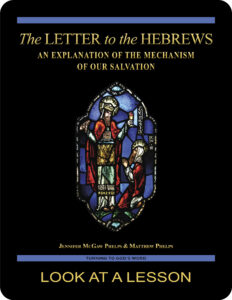anathema
 Can you define anathema? In the Letter to the Romans 9:2–3 (NABRE), we encounter one of the more difficult passages in the New Testament. Paul writes that he has great sorrow and anguish because “I could wish that I myself were accursed and separated from Christ for the sake of my brothers, my kin according to the flesh.” In the next verse he goes on to further identify the Israelites as his brothers. The difficulty of this passage is that Paul seems to be suggesting that the Israelites are more important to him than Christ. He is sorrowful on their behalf and would sacrifice his own salvation on their behalf.
Can you define anathema? In the Letter to the Romans 9:2–3 (NABRE), we encounter one of the more difficult passages in the New Testament. Paul writes that he has great sorrow and anguish because “I could wish that I myself were accursed and separated from Christ for the sake of my brothers, my kin according to the flesh.” In the next verse he goes on to further identify the Israelites as his brothers. The difficulty of this passage is that Paul seems to be suggesting that the Israelites are more important to him than Christ. He is sorrowful on their behalf and would sacrifice his own salvation on their behalf.
There are several interesting translation issues in this passage that shed some light on what Paul means. The Greek word ἀνάθεμα (anathema) is the word here translated as accursed. This word originally referred to an offering resulting from a vow. Due to the custom of sacrificing the offering, the word came predominantly to mean cursed or doomed.
More interesting by far in this passage is the verb ηὐχόμην (euchomen), the first person, imperfect, indicative of a verb meaning “I pray” or “I vow.” Greek verbs have moods that English lacks, including moods to indicate levels of possibility. Here, this verb does not make use of these moods, so the translation of “I could…” seems implausible at best. This verb also is not in the present tense but rather the imperfect tense, indicating some completed but once ongoing action in the past.
What we’re left with more literally, then, is something like “I was praying to be anathema from Christ on behalf of…” In light of this change in emphasis, I suggest a different interpretation of the passage. Paul has sorrow and anguish (see the Letter to the Romans 9:2 [NABRE]) because he once preferred his people to Christ—not because he still does. Rather he has come to understand the supremacy of Christ, and indeed in this letter he sets out to show how much greater Christ is than Judaism alone.
related topics: blasphemy; hypocrites; sin
you also may like our study of the Letter to the Hebrews (digital only)
 Many Christians struggle to understand one of the central mysteries of our faith: how Jesus can be both human and divine at the same time. The Letter to the Hebrews: An Explanation of the Mechanism of Our Salvation, an 18-lesson Catholic Bible study with an imprimatur, offers an in-depth look at the way in which Jesus’ dual nature allows for the salvation of humanity. The Letter to the Hebrews is designed to provide information that will encourage Christians to remain faithful. Click on the book’s cover to view a sample lesson.
Many Christians struggle to understand one of the central mysteries of our faith: how Jesus can be both human and divine at the same time. The Letter to the Hebrews: An Explanation of the Mechanism of Our Salvation, an 18-lesson Catholic Bible study with an imprimatur, offers an in-depth look at the way in which Jesus’ dual nature allows for the salvation of humanity. The Letter to the Hebrews is designed to provide information that will encourage Christians to remain faithful. Click on the book’s cover to view a sample lesson.
 Click on the picture of the statue of Moses with horns (above) to learn more about Lost in Translation. A new entry is archived each Monday. Contact us to receive Lost in Translation by email every week. You may use any of the contact links on our website to ask Matthew a question.
Click on the picture of the statue of Moses with horns (above) to learn more about Lost in Translation. A new entry is archived each Monday. Contact us to receive Lost in Translation by email every week. You may use any of the contact links on our website to ask Matthew a question.
